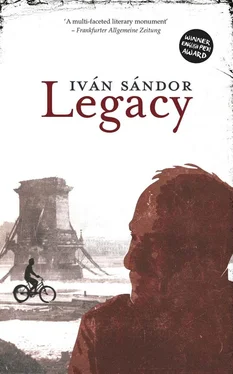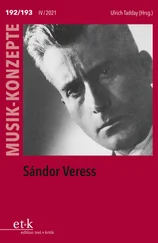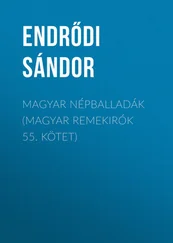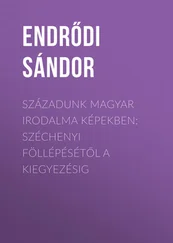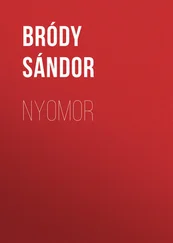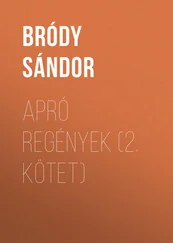Gertrud pours herself a glass of cognac. She does not pour one for Carl Lutz. She is surprised that he asks for one.
You were also not fond of the Jews in Palestine, says Gertrud. They are all lying. Lutz reconstructs years later what he replies to this. Who? In Berne, of course, everybody in the Foreign Ministry. Of course, Gertrud said, he is later to write. Yet it was with them that you wanted to make a career, you do now as well …
Lutz puts down the full glass of cognac on the table. Gertrud turns away. Maybe she thought, Lutz writes later, that she ought not to have said what she said.
All he says by way of a response to his wife is that it was a happy chance coming across Feine in Palestine.
But you didn’t tell me everything you knew even then, did you, darling, any more than you are doing now.
No, I didn’t.
Do you think that is proper?
It’s an official secret.
Also what you learned from Feine …
He made me swear not to tell …
They all lie, so it doesn’t matter if he made you swear.
With that I just spread my arms, Lutz was to write.
He goes back into the other room.
I also did not tell you that his parting words were, You cannot understand, Carl, that we know what the future will be. It just hasn’t happened yet.
Gertrud is sitting in one of the armchairs waggling a foot in small circles. She breathes in deeply, pulling in and tensing her abdominal muscles. She twists her head, gets up, fills the coffee percolator, lights the gas flame under it. The water comes to the boil three times in the flask. She cautiously opens the door to the other room. Lutz has already fallen asleep on the double bed in the office that had not long ago been converted into a sleeping place. The standard lamp had not been switched off, which was unusual. The light of a lamp on the small round table. A file lay on the table — orange with a green cord to fasten it. The knot was undone, and the file was open.
Gertrud had not seen the orange file before. There was no question that her husband had readied it for her. She switches off the standard lamp and goes back into the office.
It was 11.35 in the evening.
At the top were Carl Lutz’s notes. He had written the first in Budapest.
On 30 July 1942 Dr Jezler had reported in top-secret code to the central security authorities the atrocious events in the east that had been the product of the decisions reached at the Wannsee Conference. The reaction of the centre in Berne: the mutual mudslinging should be treated critically.
Gertrud lights up a cigarette. Who is this Dr Jezler? What is this mutual mudslinging?
Why do they not take minutes of sessions of the Federal Council? Lutz writes on the following page. Do they not want the Swiss population to learn about what they themselves already know?
Photostats: ‘In France children are brutally separated from their parents. We were eyewitnesses to scenes which reawaken memories of the massacres in Bethlehem. All the signs are that there is a single main goal: the total annihilation of Jewry.’ From the 27 August 1942 issue of the Schweizerische Kirchenzeitung of Lucerne.
In October 1942 National Councillor Albert Oeri appeals to the first session of the Swiss Assembly on Refugee Affairs: ‘It is not possible to make everything we know public. I am able to state, however, that what awaits those who are caught at our borders while trying to escape is far worse than death.’
In Vilnius 60,000 Jews have been slaughtered, reports a Swiss newspaper in February 1943.
In March 1943 the Work Relief Society of Zürich draws attention to the fact that every refusal of entry at the border is, in practice, tantamount to a death sentence.
On 27 July 1943 it is reported in one of the synagogues in Zürich that hundreds of thousands of families have been exterminated.
Gertrud can hear bursts of submachine-gun fire from the street.
It is five past midnight.
Instruction of 29 December 1942 by Dr Heinrich Rothmund, head of the Swiss Central Police Bodies, to border units: ‘All possible care must be taken that refugees who are to be refused are not allowed to come into telephone contact with anybody, whether directly or through intermediaries.’
Gertrud would like to have another cognac, but she senses that she would be sick.
She takes a drink.
She does not vomit.
When I returned to Berne last week I upbraided them for everything, writes Lutz.
Gertrud can see from the date that the note was written two weeks before. They nodded, he writes, then started to talk about other things.
Not only were they humiliating themselves but me as well; nevertheless, I do not regret making the trip. I can see more clearly the sin of which I have no part, but I might as well have had, and I must bear the shame of that. Yesterday I found in the library that the American Legation left here a copy of an English translation of The Brothers Karamazov . I have been reading it at night. Gertrud, thank goodness, sleeps very soundly. I read Alyosha’s words: We are good, good … When did I last go to church?
Gertrud spits out some yellowish vomit on to the carpet and treads it in with the soles of her shoes.
Yesterday Friedrich Born handed over the German translation of the Auschwitz Protocol. I was told by him that on 7 April 1942 the camp’s resistance organization smuggled out two young Slovak Jews, Walter Rosenberger and Alfred Wetzler, who adopted the pseudo nyms of Rudolf Vrba and Josef Lanik. They presented evidence, plans of the camp and data about the mass killings and the use of Zyklon B, a hydrogen cyanide preparation. They had signalled that preparations were already under way to receive and destroy the Jews of Hungary. The Protocol took up thirty-eight pages and 1,130 typewritten lines in Hungarian. The camp’s location, its equipment, the guard system, the methods by which selections were carried out for the condemned to be gassed were set forth.
The Protocol is being circulated in a restricted circle in Hungary, writes Lutz.
I am given a copy in June. To the best of my knowledge Jewish organizations in Geneva received it at the same time and handed it on to the press; the press does not even communicate details. To the best of my knowledge the Vatican also received copies. In Hungary copies went to the papal nuncio, Angelo Rotta, to the Prince-Primate, Cardinal Jusztinián Serédi, to Bishop László Révész of the Reformed Church and to Regent Miklós Horthy.
The next bundle of papers is fastened with a large paper clip: a separate sheaf within the file.
Gertrud reads the top page then impatiently pulls off the clip so that she can turn the pages more easily. The movement causes the bundle to slip from her hands and — seemingly there is a draught in the room — the papers are blown around.
She gets up. First of all she wishes to establish which window or door could have opened, but she finds them all closed. She kneels down but feels giddy from making the movement. She clambers to her feet and sets off for the bathroom, not noticing that she is trampling on pages from the protocol. She washes her face with cold water. She thinks that perhaps her blood pressure has again dropped sharply, so she lies down on the bench for dirty linen and dangles her head down. She waits before going back to the room. She had read beforehand that the Auschwitz Protocol was thirty-eight pages long, but she does not dare bend down for the scattered pages for fear of another giddy spell. She slowly gets down on to her hands and knees and starts to collect the pages.
She has no notion of how long she had been reading, how long she spent in the bathroom or how long she has been collecting pages.
She goes to bring a jug of water but first gargles over the washbasin, using a mouth wash and a Swiss toothpaste, then dabs a few drops of Givenchy scent on her temples before resuming her seat in the armchair. It’s as if time were passing which is not her own but of which she is nevertheless a part. She is outside of this time yet unable to extricate herself from it; it is impossible to determine whether real time is the duration of reading or the time of what she is reading.
Читать дальше
